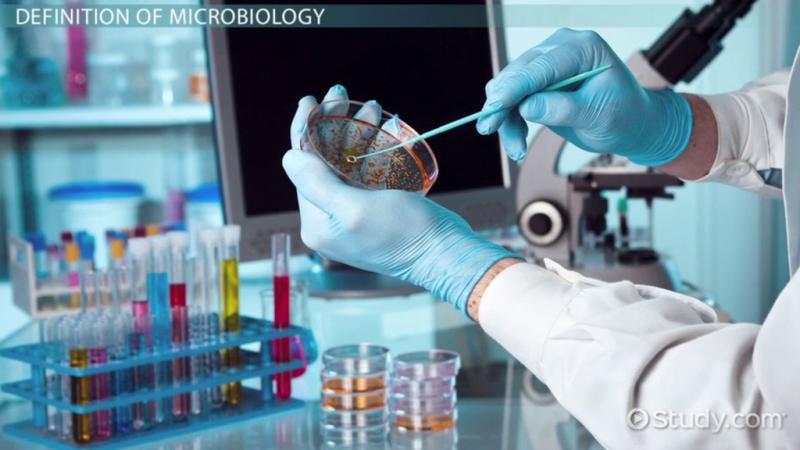What is the best way to learn microbiology?
Microbiology is a fascinating but complex subject. The best way to learn microbiology depends on individual preferences and learning styles, but here are some effective methods that often work well:
Understand the Basics: Start with a solid foundation in basic biology concepts. Understanding cell structure, genetics, and biochemistry lays a strong groundwork for comprehending microbiology.
Active Learning: Engage actively with the material. Take notes, ask questions, and participate in discussions. Teach the concepts to others or explain them in your own words to reinforce your understanding.
Visual Aids and Resources: Use visual aids like diagrams, charts, videos, and animations. Visualizing microbial structures and processes can help in better understanding complex concepts.
Practice with Practical Applications: Apply what you learn. If possible, get involved in laboratory work or experiments related to microbiology. Hands-on experience solidifies theoretical knowledge.
Utilize Resources: Use textbooks, online resources, and academic journals. Take advantage of reputable online courses, lectures, or tutorials that focus on microbiology.
Flashcards and Summaries: Create flashcards or summaries for key concepts, terms, and microorganism classifications. Reviewing these regularly helps reinforce memory.
Group Study or Discussion: Collaborate with peers or join study groups. Explaining concepts to others and discussing topics can deepen your understanding through different perspectives.
Practice Tests and Quizzes: Test your knowledge with practice quizzes or tests. They help identify areas that need more focus and reinforce learning through repetition.
Stay Organized: Organize your study materials, notes, and resources systematically. This helps in easy access and efficient revision.
Break Down Complex Topics: Break complex topics into smaller, more manageable sections. Focus on understanding each part before moving on to the next.
Consistent Review and Revision: Regularly review and revise what you've learned. Spaced repetition, where you revisit material at intervals, aids in long-term retention.
Remember, microbiology can be challenging, so patience and perseverance are key. Experiment with different methods and find what works best for you. Additionally, seeking guidance from professors, tutors, or academic resources can provide valuable assistance when tackling complex topics.
What methods or approaches yield the most effective learning outcomes in microbiology?
Achieving effective learning outcomes in microbiology requires a diverse and engaging approach that caters to different learning styles and maximizes comprehension and retention. Here are some proven methods and approaches:
Active Learning Strategies:
- Inquiry-based learning: Instead of passive lectures, pose questions and challenges that encourage students to explore, investigate, and form their own conclusions. This can involve conducting mini-experiments, analyzing data, and drawing connections between concepts.
- Problem-solving and case studies: Present real-world scenarios or case studies related to microbial issues like disease outbreaks, environmental concerns, or industrial applications. This allows students to apply their knowledge to practical situations and develop critical thinking skills.
- Collaborative learning: Group projects, discussions, and debates foster cooperation, communication, and peer learning. Students can share perspectives, explain concepts to each other, and learn from diverse viewpoints.
- Visualization and technology: Incorporate interactive simulations, microscopy visuals, virtual labs, and 3D models to bring abstract concepts to life and enhance understanding of microbial structures and processes.
Engaging the Senses:
- Hands-on activities and experiments: Practical work in the lab is crucial for microbiology. Students can observe microbial growth, isolate and characterize bacteria, and perform basic bioassays. These hands-on experiences solidify theoretical knowledge and develop technical skills.
- Creative expression: Encourage students to explore their understanding through presentations, artistic representations, or even writing stories or songs about microbes. This fosters creativity, communication, and deeper engagement with the material.
- Role-playing and games: Interactive activities like role-playing different types of microbes or simulating disease outbreaks can make learning fun and memorable. This allows students to explore different perspectives and gain a deeper understanding of complex processes.
Individualized Learning:
- Differentiated instruction: Provide alternative learning materials and activities to cater to diverse learning styles and needs. This can include offering written materials, video lectures, podcasts, or interactive quizzes.
- Self-directed learning: Encourage students to take ownership of their learning by setting goals, researching topics of interest, and completing independent projects. This fosters autonomy and critical thinking skills.
- Regular feedback and assessment: Provide constructive feedback on assignments, lab work, and presentations. This helps students identify areas for improvement and solidify their understanding.
Additionally:
- Emphasize the relevance of microbiology: Contextualize learning by relating microbial concepts to real-world applications in healthcare, food production, environmental science, and biotechnology. This highlights the importance of the field and motivates students.
- Promote a positive and collaborative learning environment: Create a safe space where students feel comfortable asking questions, making mistakes, and learning from each other. This fosters curiosity, engagement, and a love for learning microbiology.
By implementing a combination of these methods and approaches, you can create a dynamic and engaging learning environment that fosters effective learning outcomes in microbiology for students of all backgrounds and learning styles.
Remember, the best approach is often a mix of these methods, tailored to the specific needs of your students and the learning objectives of your course.
I hope this information helps you navigate the fascinating world of microbiology education and inspire effective learning in your students!













